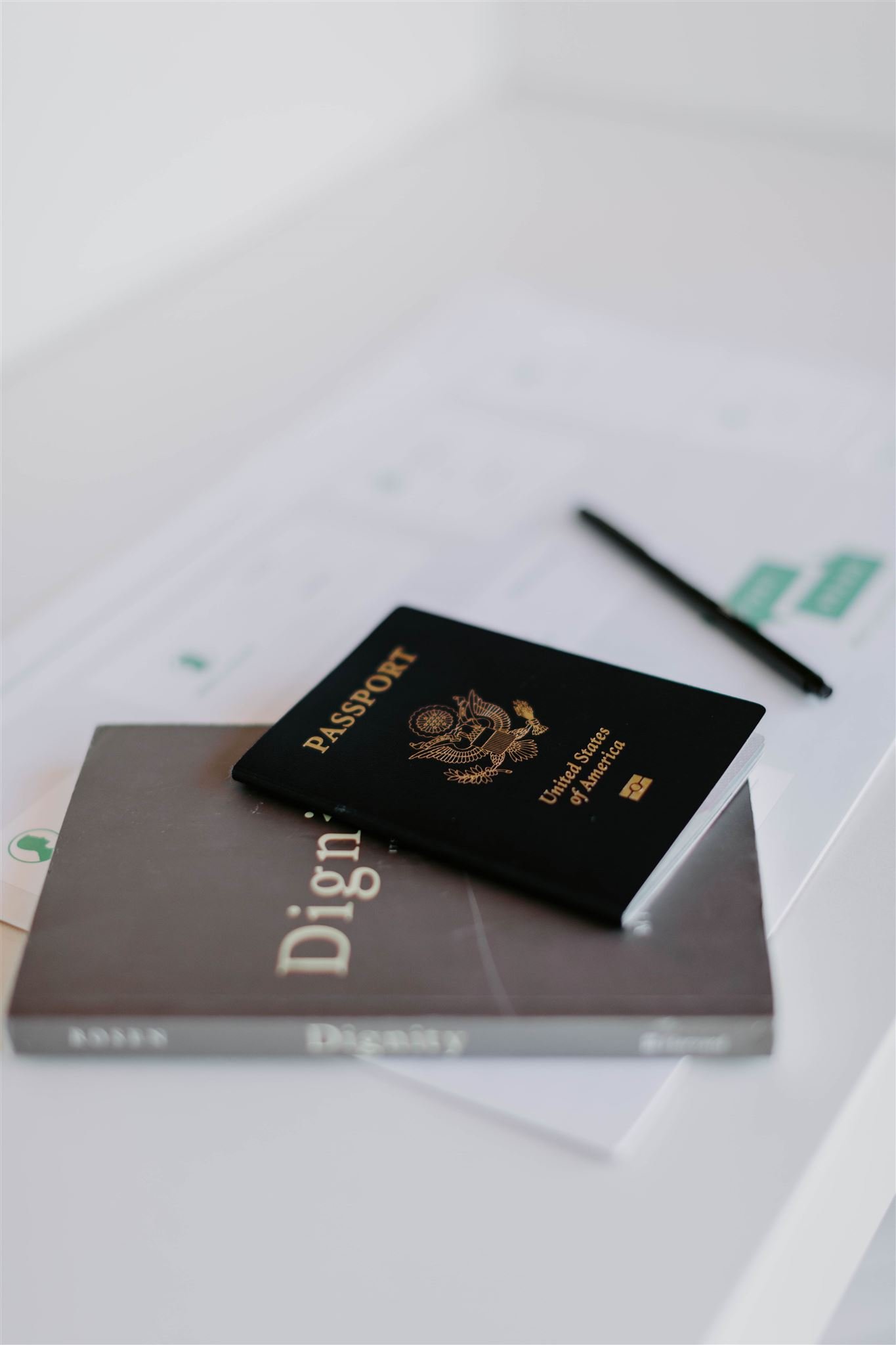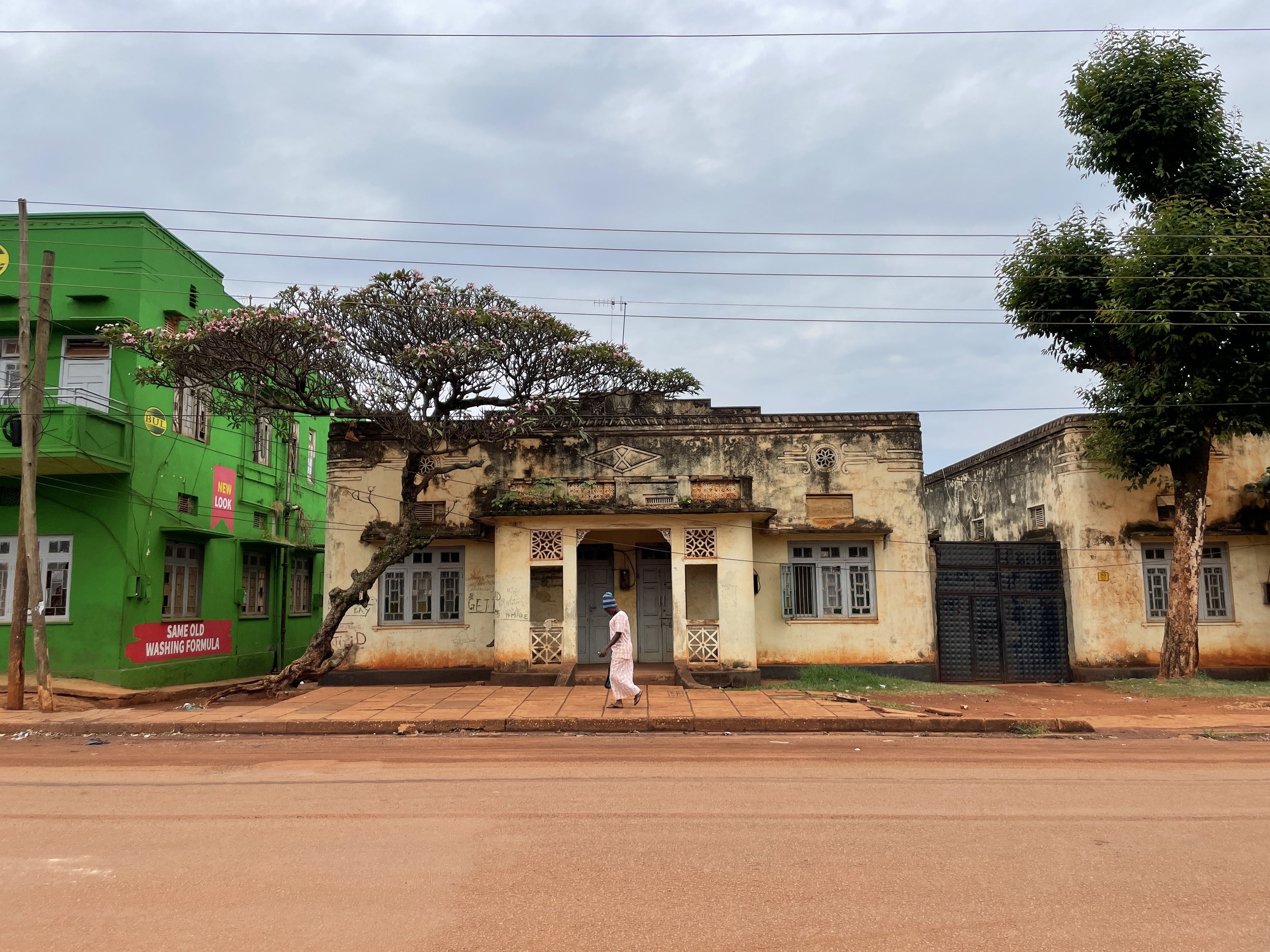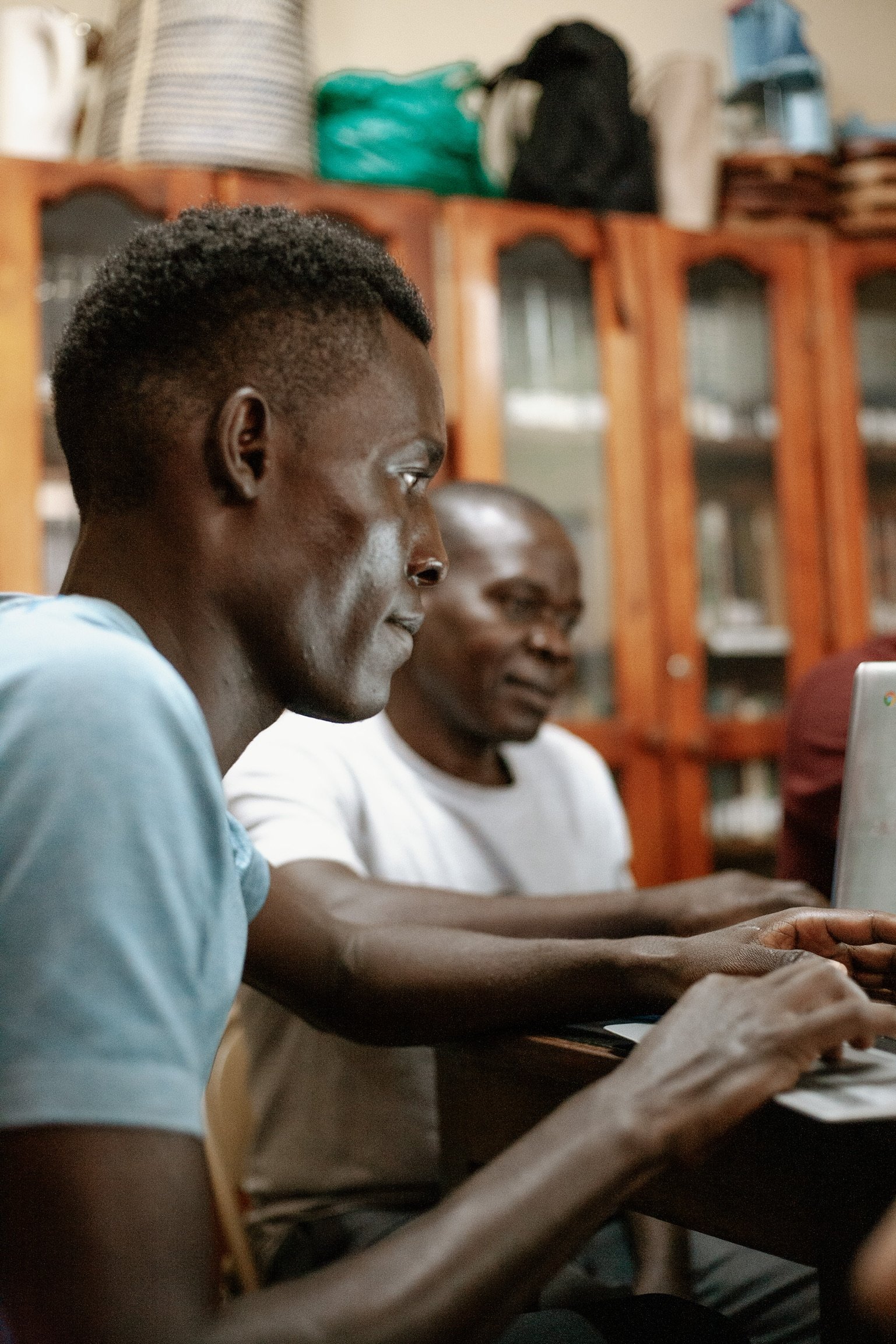Ethical Storytelling in Action
In July 2022, I found myself awkwardly tucked into a toilet-adjacent seat on a cramped Kenya Airways flight. I was headed to meet a group of strangers that I met on the internet to spend a week with them in a town I’d never heard of. Smart plan, right?
No, this wasn’t the start of a summer thriller acquired by Netflix. Although I suppose it could have gone that way. Rather, it was a quest to see what all of these “good ideas on paper” might actually look like in reality. In other words, how does it really look like to communicate stories—both our own and others’—ethically and with dignity?
-
In our attempt to raise support, advocate for a cause, or promote the good an organization is doing in the world, it can become incredibly easy to co-opt stories that are not ours to tell, skew data, or emotionally rig a story to get more of a reaction from our audience. While our intentions might actually be good, we can actually be causing more harm than we realize.
At its heart, ethical storytelling is a realization that stories are powerful. In fact, stories can change the world. So as we’re crafting those stories, we aim to do so through the lens of honoring and dignifying those we’re serving. We strive for authenticity, transparency, deep respect, and a true collaboration and partnership with all involved.
My reservations about short term missions
For quite some time now I have felt rather dismissive of—and even antagonistic towards—short-term missions and volunteer trips. I have many reasons why (and I’m happy to have a conversation about them sometime) but what’s important to know here is that I was not eager to go on anything that remotely resembled a “mission trip”.
Side note: if this is a topic you’d like to learn more about, below are three books I’d recommend as a great starting place. Have other resources you’ve found helpful on this topic? Please share!
-

Tread Brightly: Notes on Ethical Travel
Edited by Sarika Bansal
-

Beyond Guilt Trips: Mindful Travel in an Unequal World
by Anu Taranath
-

Ours to Explore: Privilege, Power, and the Paradox of Voluntourism
by Pippa Biddle
So, if I wasn’t looking to go on a missions trip, how on earth did I find myself flying half-way around the world to join a group of American volunteers for a week in Uganda?
Valid question.
In my quest to have 100 conversations around ethical storytelling, I discovered a PDF that Kindred Exchange put out on this very topic and reached out to see if they’d be willing to chat about it.
Abby, Kindred Exchange’s Executive Director, graciously agreed to jump on the phone with me and chat. During that conversation she talked about the organization and their desire to do short-term missions differently. The more we talked, the more intrigued I became. She was acknowledging so many of my criticisms of these types of trips while explaining their plans to provide a different way.
You should know that my goal with the research I’m working on is not just to have good ideas and interesting theories, but to provide practical tools and frameworks that others can put into action. Similarly, the co-founders of Kindred Exchange seemed more interested in testing out ways to make short-term trips more ethical and sustainable than writing blog posts about their thoughts on the topic. I knew I had found my people.
One thing that I appreciated about Kindred Exchange from the get-go was their willingness to move forward without having everything figured out. I admired that they carried a lot of humility into their work, recognizing that they aren’t going to have all of the answers. They did their research, made plans, and sought wise counsel and then they ventured in their work with an open mind and a loose agenda, willing to adjust where needed as they went.
Far from the matching group t-shirts, minute-by-minute agendas, and “we know best” mentality of trips I’ve been on before, Abby and Lauren led a trip anchored in “co-powerment” and “exchange”. We went to Uganda to learn as much as to teach, to receive as much as to give, to experience as much as to share. And we were encouraged to actually dress up for the occasion.
Did it work out perfectly? Not at all. Was it a move towards a much better model? Unequivocally yes. Did it give me an excuse to buy a new pair of “business casual” pants that I’ve been eyeballing? Also yes.
What we were up to
Kindred Exchange has launched a ten month business training program for eleven entrepreneurs in Uganda. Our group of nine Americans was there to do two things primarily: build relationships with this group of individuals and understand what training would be most relevant and impactful for them (and how to best deliver it).
It’s worth noting here: we will not be the ones coaching them for the next ten months - but I know that we will all stay in touch and cheer them on through throughout this program.
So what did our group do? Well, along with providing some tech set-up and training, getting to know each individual, and stepping in with some fun icebreakers and games when energy flagged, we were there to take note of the culture and business acumen of the group so that the coaches at Kindred Exchange would know how to adapt and deliver the best training possible for this particular cohort. From where the group can easily access to wifi and their familiarity with Google Sheets to understanding local financing options and cultural storytelling norms, we were students as much as teachers on this trip.
Want to learn more about this incredible cohort of entrepreneurs? Click here.
But what about the ethical communications piece?
Glad you asked! This was a huge question I carried into this trip. It was the beautiful guide on Ethical Communications they created that caught my attention in the first place - but the real question was, what could promoting ethical communications look like in practice.
Upon arrival in Uganda, we were given folders containing various information about our trip - including loose itineraries, Kindred Exchange’s statement of beliefs, communications guidelines, and a media waiver to sign. Abby and Lauren, our trip leaders, walked us through these last three pieces in detail with a fantastic discussion around collecting stories, capturing photos, and posting content to social media.
A few highlights from our discussion on that first night included:
Only sharing stories that we have full permission and consent to share
The impact of word choice in creating emotional charged stories, perpetuating stereotypes or positioning ourselves as humanitarians or “saviors” and others as victims
The importance of sharing stories of hope and not brokenness
How to be respectful and conscious of appropriate (and inappropriate) times and ways to take photos
The value of being mindful - even if we don’t always get it right, to do our best in capturing and sharing our experiences, interactions, and the work that’s happening
“The way that we communicate about an experience we have is going to shape the perception of that experience for someone who hasn't had it. So the way that we talk about Uganda and the way that we talk about what happens here this week will greatly impact what other people store in their mind as a picture of this place and these people, and we want to make sure that as we tell these stories, and as we as we share, [we remember that] storytelling is so incredibly powerful. It unites people, it paints imagery for people, and invites them into a place that they've never tasted or seen or heard. And so it's going to be really important that we tell about the things that we've smelled, the things that we have tasted, and the people that we've interacted with. But the way that we do that is going to really impact what the people in your circles understand about Uganda.”
— Dr. Lauren Pinkston, President of Kindred Exchange, walking our team through communications guidelines for our trip
Collecting & Sharing Stories
I mentioned earlier that we were provided with a media waiver in our information packets. The same wavier was also given to the Ugandan cohort during our first meeting with them. But something that I truly appreciated was that time was taken to really explain not only why they were being asked to sign this, but where and how these images and videos might be used - on websites, social media, and other marketing materials. That their stories were being shared for fundraising purposes as well as to showcase the work that Kindred Exchange was embarking on.
In fact, I’d love to share the video that was just released from our trip:
There were certainly a lot of cell phones (and one DSLR) snapping photos, capturing selfies, and shooting video while we were together. But I noticed that our group was mindful to build relationships before taking photos and that the picture-taking felt more like a capturing of memories than anything.
Interestingly, because we had such limited wifi during our days, everyone often needed to wait until we were back at the guest house each evening to edit photos and post to social media. Which had two interesting benefits: everyone seemed much more present in the moment rather than glued to their phones, snapping and posting; and more space and time was given to craft thoughtful captions and check in with others about the wording or appropriateness of a particular caption. While this was an intentional move, it was something I appreciated.
Takeaways & Learnings
Start Early
After debriefing with the team, one thing that came up was the desire to have cultural training and communications guidelines before traveling. The earlier you can equip participants as they fundraise and mentally prepare for their travels and experiences, the better.
People First
It is so easy to want to bring out our cameras (or phones) the minute we land in a new environment. But keeping them tucked away for a few days can give everyone a chance to build relationships and trust — so that the faces captured aren’t just a snapshot in a camera roll.
Offer Ownership
Rather than just providing a set of “rules” that might feel new and restrictive, offer the group a framework for a new way of thinking about communications when traveling abroad and allow the group to speak into and co-create how they want to communicate.
Interested in figuring out how your team can create their own framework and guidelines for ethical and dignified communications? Please reach out, I’d love to help.










